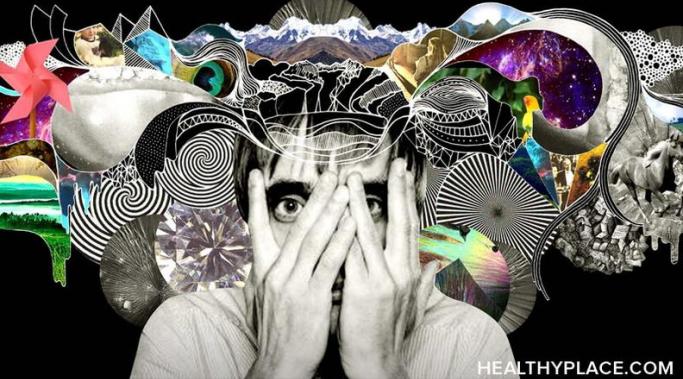Last week was my birthday. I didn't do anything or mark it in any way. That is mostly because, on my birthday, I look back and see bipolar behind me and I look forward and see bipolar in front of me.
Coping
I think I’m pretty great as a general rule. I’m kind, caring, intelligent, creative, talented, sexy, witty and a bunch of other stuff. Not particularly greater than anyone else, just the normal amount of great.
Except for when I’m not, of course. Except for when I'm darkness sliced from evil. Except for when my slithering existence requires extinguishing. Then, I’m not so great.
This week one of my Twitter followers asked me for advice on communicating with her friends and family about her mental illness. She has only recently started telling people of her illness and she wasn’t sure on how to express her needs around her mental illness.
This is a great question and one I think every person with a mental illness faces. How do you tell people about your mental illness needs?
Sometimes people don’t believe I’m particularly sick. They meet me, I look fine, I interact, I charm, I wit and all seems, if not normal, at least something reasonably normal adjacent.
And that’s fine. It’s by design. Being a high-functioning mentally ill person, I can’t really afford to run around with my hair on fire. But faking normalcy, happiness and pleasure is a tricky and very expensive bit of business.
I recently received a comment regarding bipolar medication, its development and the mental health care system in general. The commenter accuses the mental health community of being corrupt and asks, “Why are we forced to take such bad bipolar medicines?”
I’m not a fan of New Year’s resolutions. I generally find them phony, unreasonable and dead by the second week of January. I feel if you’re ready for change in your life you make change at that moment, not when a ball drop tells you to.
That being said, people insist on making New Year’s resolutions anyway. It’s a psychological and societal time of renewal and a life reset that people choose to mark with promises. So if you’re bipolar, what kind of New Year’s resolutions might be helpful?
Congratulations; if you’re reading this you’ve survived the holidays, or most of them anyway. You’re past the late-night wrapping sessions, the overindulgence in eggnog and the stuffing that you never like but every year are forced into eating anyway. Huzah.
But if you’re a bipolar like me, you’ve found that all that forced merriment has left you feeling hollow, tired and depressed, so it’s time to take action to get back to your pre-holiday self.
I’m spending this Christmas back in the town where I grew up, sleeping in my mother’s guest room. I have to be there a week. A week with parents and siblings. A week of turkey and tiny oranges. A week of me silently begging to go home.
But I understand that holiday obligations are, well, obligatory, so I do have some methods for trying to survive it.
Epileptics often get what is known as an aura before they have a seizure. An aura is a sensation like hearing voices or seeing colored lights or experiencing numbness. An aura might be present a few seconds or a few minutes before the seizure depending on the person. It’s an early warning sign of a brain misfire. Similarly, I experience signs, an aura if you will, of upcoming hypomanias.
When we were children, for most of us, Christmas was magical. You got to tear into shiny wrapping paper and discover the most amazing and wondrous gifts inside. There was a Santa Claus who confirmed we had been good all year long. There was a Christmas tree reaching to the sky and cookies and candies abounded. Our four-year-old, six-year-old, eight-year-old minds didn’t see the faults, cracks, bills and squabbles. All we remember is the Barbies, remote-control cars and cookies for Santa.
And so it should be. Those memories, even if mostly embellishments of imagination, are great to hold onto.
The problem is, for some reason, we spend our entire adult lives trying to recreate the magic that never existed in the first place.



